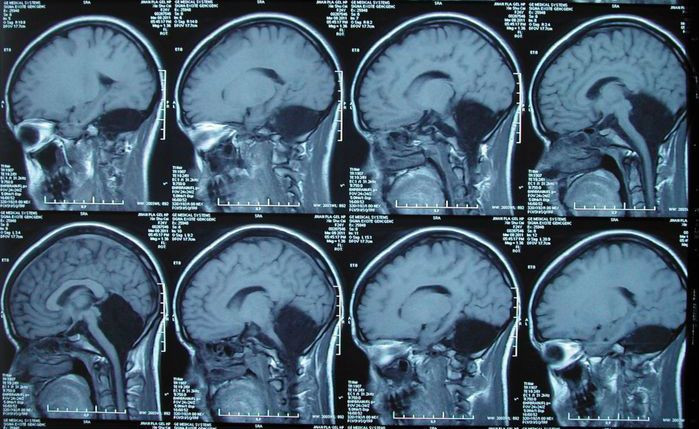Woman With No Cerebellum Has Only Mild To Moderate Symptoms, Despite Huge Neuron Lack

The Aug. 22 issue of Brain published a case study of a 24-year-old woman who was born without a cerebellum. But, even as the findings are some of the rarest in science, the most interesting thing about the case isn’t what’s lacking in her brain, but how much is made up for by other parts of her brain function.
Scientists call the condition “complete primary cerebellar agenesis.” While the large majority of people rely on their cerebellum, or “little brain,” as a way of controlling speech, movement, attention, and language, the woman in the Shandong Province researchers’ study had to rely on other regions to adopt these functions on their own. It wasn’t until she checked herself into the University hospital, complaining of dizziness, and doctors scanned her brain that she learned she’d been born without her little brain.
“This surprising phenomenon," the authors write, "supports the concept of extracerebellar motor system plasticity, especially cerebellum loss, occurring early in life."
Basically, the brain was able to reconfigure itself to adjust for the missing component. Not entirely, mind you. The woman’s mother says her daughter couldn’t stand on her own until age 4, and she couldn’t speak intelligible sentences until age 6. Even when she approached doctors in the hospital, she complained she had suffered balance issues all her life.
But now that her brain is fully formed, the researchers studying her case claim the symptoms are moderate, at worst. A neurological examination, for instance, “revealed she could cooperate and fully orientate. A verbal analysis test revealed her word comprehension and expression remained intact and she had no sign of aphasia, but mild to moderate signs of cerebellar dysarthria.” The woman also had a mild voice tremor and slight difficulties with pronunciation, though the authors point out she is married and has a daughter. They say her pregnancy was “uneventful.”
Missing a cerebellum, in terms of rarity, is roughly on par with missing a face. The number of people who are born without the brain region can be counted on two hands, and those who go onto live enriched, complete lives perhaps just one. The cerebellum makes up little more than 10 percent of the brain’s total weight, but it houses 50 percent of its neurons. It is involved in some of the highest executive functions, and its absence, while not paralysis-inducing, can be devastating.
So what makes this latest patient special? Somehow, her researchers find, the answer lies with greater neuroplasticity. Her brain stayed malleable.
Growing up, the brain is essentially a lump of soft clay. Life experience molds it. The earlier children get exposed to new and different words, the easier reading will come to them. If they happen to be born into an abusive household, their amygdalae — the fear centers of their brains — will become more sensitive to certain patterns of speech or behavior.
As we grow up, our brains start to set, like cement. We react in predictable patterns that were shaped in our formative years. We still have some control, of course, but in large part the broad strokes are taken care of. The 24-year-old patient grew up without a cerebellum, so the functions that are otherwise considered critical, like speech and the precision of handwriting, got picked up elsewhere. It’s the same principle behind blindness leading to heightened audition.
According to the researchers, the woman’s case is supremely unique and one worth studying in-depth later on because it means the rest of the brain, the cerebrum, is more powerful than once thought. Most children with missing cerebellums suffer extreme bouts of epilepsy, hydrocephaly (excess fluid in the brain), and other severe impairments. She, however, is something of an anomaly.
“This surprising phenomenon supports the concept of extracerebellar motor system plasticity,” they wrote, “especially cerebellum loss, occurring early in life.”



























